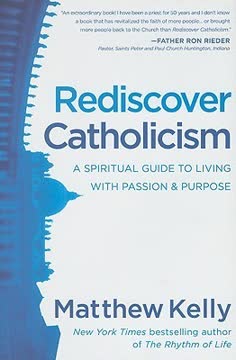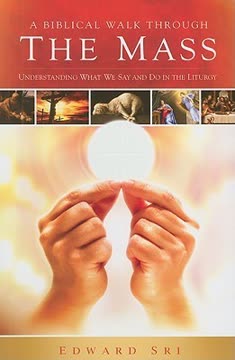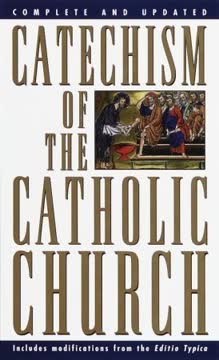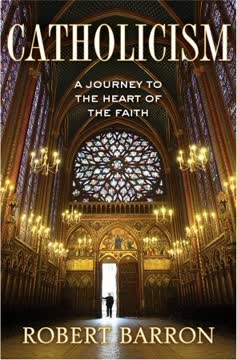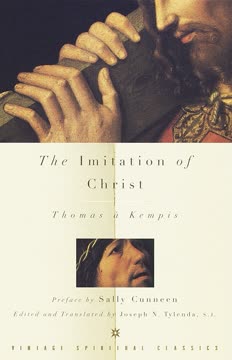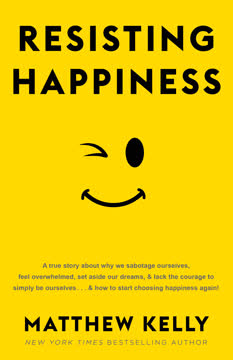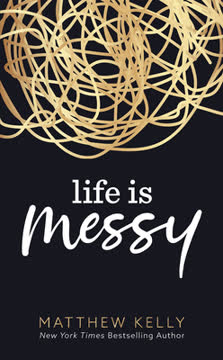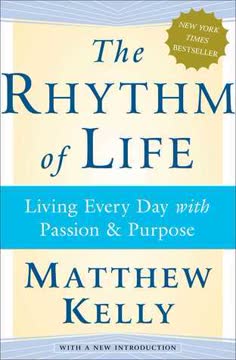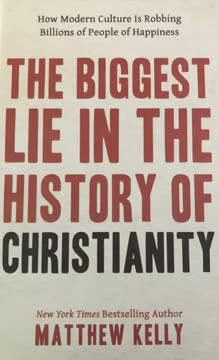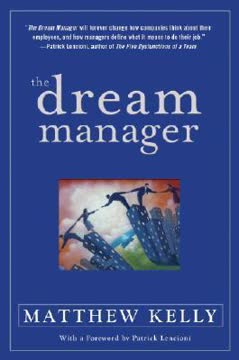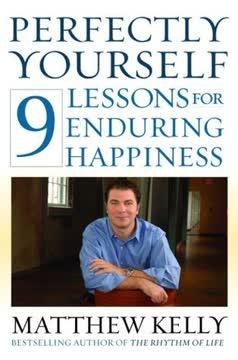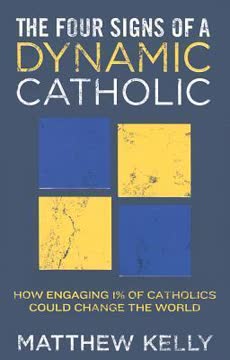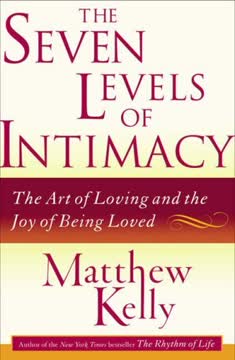Key Takeaways
1. Rediscover Catholicism to Transform Your Life
The Church (like so many other things in life) is not so much something we inherit from generations past or take over from our predecessors as it is something on loan to us from future generations.
Forgotten Story. The Catholic Church, despite recent scandals, has a rich history of global contributions, including healthcare, education, and charitable work. Many Catholics are disillusioned, and society has a low opinion of the Church due to forgotten stories and distorted media portrayals. It's time to rediscover the genius within Catholicism.
A Call to Action. Instead of disengaging, Catholics should actively explore their faith, be part of the solution, and step up their involvement. There is genius in Catholicism that can fix what is wrong with it. If 67 million Catholics in the United States stepped it up a notch, something incredible would happen.
Vision for the Future. The Church needs a vision to inspire and mobilize Catholics, young and old. This vision is not solely the responsibility of Church leaders; each Catholic has a role to play. It's time to become a people of possibility, reimagining what incredible things are possible if we walk with God.
2. Embrace Authenticity Over Appearance
Our hunger is not for appearances, nor is it for the fleeting and superficial; it is for something of substance. We are hungry for truth.
Culture of Illusion. Modern society is governed by illusion and deception, prioritizing appearance over substance. People are hungry for truth, sincerity, and authenticity, yearning for something genuine amidst the superficiality. This hunger is neither random nor accidental; it is the presence of God calling us to move beyond surface concerns.
The Church's Failure. Christianity, particularly Catholicism, has been largely rejected because people believe Christians are part of this culture of appearance and deception. Many intelligent people avoid Christianity due to hypocrisy among church members and leaders. It is a harsh truth that needs to be faced.
Show, Don't Tell. People are sending a clear message: "Don't tell me—show me!" They crave courageous examples of authentic lives, lived to the fullest despite the modern climate. The world begs for brave men and women to lead with the example of an authentic life.
3. Reject Individualism, Hedonism, and Minimalism
Individualism, hedonism, and minimalism will destroy every individual and community that practices them.
Philosophical Poverty. Our age suffers from philosophical poverty, leading to moral and ethical confusion. Instead of rigorous thought, we absorb philosophies through culture, resulting in allegiance to destructive principles. It is important to learn that ideas have very real consequences.
The Modern Trinity of Vice. Individualism, hedonism, and minimalism govern much of modern decision-making. Individualism asks, "What's in it for me?" Hedonism proclaims, "If it feels good, do it!" Minimalism demands, "What is the least I can do?" These philosophies weaken communities and destroy character.
Self-Destructive Philosophies. These philosophies are not new but failed ideologies of the past. They produce greed, selfishness, laziness, lust, and exploitation. Any community that adopts these philosophies does so at its own peril, ultimately destroying body, heart, mind, and soul.
4. Christ's Philosophy: Love Through Discipline and Freedom
Love is the core of Jesus’ philosophy. But in order to love you must be free. For to love is to give your self freely and without reservation.
The Quest for Happiness. The human heart yearns for happiness, a desire God placed within us. However, modern philosophies like individualism and hedonism lead to discontent. God sent Jesus to show us how to satisfy this yearning, offering a philosophy of self-donation.
The Attitude of Christ. Jesus never asked, "What's in it for me?" He advocated self-denial, asking, "What is the most I can do?" He invites us to a life of discipline, not to control us, but to help us share in his happiness.
Love, Freedom, and Discipline. Love is the core of Jesus' philosophy, but freedom is a prerequisite. Freedom is the strength of character to do what is good, true, noble, and right, attained only through discipline. Jesus is relevant because he offers the satisfaction of our craving for happiness through love, discipline, and freedom.
5. Reclaim Your Catholic Identity Through Love
This is how all will know that you are my disciples, if you have love for one another.
The Church's Mission. The Church's primary mission is spiritual: to proclaim the Gospel. This mission should impact the social, political, and economic order, elevating every aspect of society. The Gospel has the power to transform lives, communities, and the world.
The Adventure of Salvation. God invites us to join the adventure of salvation, becoming the-best-version-of-ourselves through a dynamic collaboration with Him. This involves discovering our unique path through our needs, desires, and talents.
A Call to Love. Catholics today struggle to establish a vibrant identity, plagued by stereotypes and scandals. Jesus offers a solution: "Love one another." This love, expressed through action, will radically alter how Catholics are perceived in society.
6. Personal Holiness: The Solution to Every Problem
Personal holiness is the answer to every problem.
Problems as Opportunities. Every faith community faces problems, which can either drain energy or become a source of renewed enthusiasm. Problems occur so that we can become better versions of ourselves.
Checking the Compass. As Christians, we should always check and adjust the compass that guides us, asking, "What are we celebrating?" We become what we celebrate, so we must celebrate life, faith, love, and virtue.
The Path to Renewal. The solution to the problems that plague our lives and the Church is personal holiness. By applying the values of the Gospel to our daily lives, we can transform ourselves and the world. The future of the Church depends on men and women who embrace this call to holiness.
7. The Authentic Life: Integrating Needs, Desires, and Talents
The authentic life begins with the simple desire to be who God created us to be and cooperate with God by playing the part he has designed for us in human history.
Surrendering to God's Will. The authentic life begins with a desire to be who God created us to be, surrendering our will to His designs. God calls us to live an authentic life, integrating our legitimate needs, deepest desires, and unique talents.
Fostering the Inner Life. The authentic life is compatible with any honest human activity. The transformation of ordinary activities into prayer is the essence of the inner life. Every activity can lead us to experience God.
Modern Despair. Modern society is plagued by quiet desperation, cultural fatigue, and hopelessness. The loss of our essential purpose is the cause of this great modern madness. The authentic life orients us toward the goal of the Christian life: living holy lives.
8. The Saints: Guides to an Authentic Catholic Life
I said to the almond tree, ‘Sister, speak to me about God,’ and the almond tree blossomed.
Spiritual Champions. The saints are extraordinary examples of the Christian life, serving as role models, guides, and mentors. Their stories provide a living legacy of spiritual wisdom, helping us navigate the path to holiness.
Overcoming Objections. Some modern Catholics have turned their backs on the saints due to false stereotypes and superstitions. However, the solution is not to abolish the good but to rediscover the valuable contribution the saints make to our spiritual lives.
The Pedestal Syndrome. We often place saints on pedestals, believing they are different from us. However, the great danger is that veneration can become more important than imitation. The saints challenge us to reject the spirit of the world and embrace the Spirit of God.
9. Seven Pillars: Cornerstones of Catholic Spirituality
Only one thing is necessary for Catholicism to flourish—authentic lives.
The Disciples' Request. The people of every age yearn for God, and the request modern Catholics have of Jesus is the same as the disciples': "Teach us to pray." Catholicism needs to be more than a religion; it needs to be a dynamic transformation.
Building a Spiritual House. The seven pillars of Catholic spirituality combine two thousand years of wisdom into a handful of spiritual exercises. These practices are designed to help us build a strong spiritual foundation, capable of weathering any storm.
Deep Roots. Like trees with deep roots, those who dedicate themselves to the basics of Catholic spirituality will thrive. These seven pillars are the cornerstones of a life lived in harmony with God, self, and others.
10. Confession: A Path to Self-Knowledge and Freedom
The surest signs of holiness are not how often a person goes to church, how many hours he spends in prayer, what good spiritual books he has read, or even the number of good works he performs. The surest signs of holiness are an insatiable desire to become all God created us to be, an unwavering commitment to the will of God, and an unquenchable concern for unholy people.
Identifying Weaknesses. Like world-class athletes, we must identify our weaknesses and work to transform them into strengths. This process of self-assessment is central to Catholic spirituality.
Turning Back to God. Confession is not merely about confessing sins; it's about turning back to God. It's an opportunity to reassess our journey, identify obstacles, and continue along the path.
A Sacred Encounter. Confession is a sacred encounter with God, a humbling yet liberating experience. It's an integral part of the genius of Catholicism, nurturing the whole person and transforming the world.
11. Daily Prayer: Connecting with God in Silence
I have come that you may have life and have it to the fullest.
The Role of Discipline. Discipline is the path that leads to "fullness of life." When we embrace a life of discipline, we awaken from our philosophical stupor and refine every aspect of the human person.
The Attitude of Christ. Jesus never asked, “What’s in it for me?” He was not motivated by the individualist creed; he was motivated by a spirit of service. Far from advocating a hedonistic deification of pleasure, Jesus gently proclaimed a life of selfdenial, saying, “Whoever wishes to follow me, let him deny himself and take up his cross.”
The Core of His Philosophy. Jesus opened his divine lips slowly, with the calm assurance of somebody who knows what he is talking about, and replied, “You shall love the Lord your God with your whole heart, your whole mind, and your whole soul. This is the first and the greatest of the Commandments. And the second is like it, you shall love your neighbor as yourself. Upon these two rest the whole law and all the prophets.”
12. The Mass: A Profound Encounter with Christ
The spirit of Catholicism is predominantly one of celebration, which is the genius and the fundamental orientation of our faith.
Beyond Boredom. The Mass is not inherently boring; it's a profound encounter with Christ. To rediscover its power, we need to change our approach and renew our understanding of its workings.
Preparation is Key. Just as athletes train for a game, we must prepare for Mass. Reading the readings beforehand and arriving early to place ourselves in God's presence are essential.
A Personal Journey. The Mass is a journey of transformation, guided by the Holy Spirit. By engaging with the music, readings, and prayers, we can allow God to speak to us and become the-best-version-of-ourselves.
Last updated:
FAQ
1. What is "Rediscover Catholicism" by Matthew Kelly about?
- Spiritual guide for Catholics: "Rediscover Catholicism" is a spiritual guide that explores the richness and relevance of the Catholic faith in the modern world, aiming to inspire Catholics to embrace their faith more fully.
- Focus on personal transformation: The book presents Catholicism as a dynamic lifestyle and learning system designed to help individuals become the-best-version-of-themselves.
- Addressing modern challenges: Matthew Kelly acknowledges the challenges facing the Church, such as scandals, disengagement, and cultural opposition, and offers a hopeful vision for renewal through personal holiness and active engagement.
- Structure and content: The book covers universal spiritual hunger, the authentic life, seven pillars of Catholic spirituality, and a call to action for Catholics to become leaders and witnesses of faith.
2. Why should I read "Rediscover Catholicism" by Matthew Kelly?
- Reignite faith and hope: The book helps Catholics and seekers understand the deep spiritual hunger in every human heart and how Catholicism uniquely addresses this longing for truth and happiness.
- Practical spiritual guidance: It provides clear, actionable advice on developing a daily prayer life, understanding the Mass, and practicing fasting, making spirituality accessible and relevant.
- Inspiration for renewal: Kelly inspires readers to embrace their vocation and mission, addressing common struggles with empathy and practical solutions.
- Engagement with modern issues: The book tackles contemporary challenges like declining Mass attendance and cultural indifference, offering hope and strategies for change.
3. What are the key takeaways from "Rediscover Catholicism" by Matthew Kelly?
- Personal holiness is central: True renewal in the Church and individual lives begins with striving for holiness and becoming the-best-version-of-oneself.
- Spiritual disciplines matter: Daily prayer, fasting, spiritual reading, and participation in the Mass are foundational practices for growth.
- Leadership and storytelling: Catholics are called to be leaders and storytellers, shaping culture and inspiring others through authentic living.
- Hope for the future: Despite challenges, Kelly affirms that God will raise up new saints and leaders, and each person has a role in the Church’s renewal.
4. What are the best quotes from "Rediscover Catholicism" by Matthew Kelly and what do they mean?
- "We become what we celebrate": This means that the values and virtues we honor shape our identity and future, urging Catholics to celebrate faith and goodness.
- "The-best-version-of-yourself": Kelly’s core idea that personal fulfillment and holiness come from striving to be who God created you to be.
- "Discipline is the path to freedom": Emphasizes that self-discipline enables true freedom and the ability to love fully.
- "The Mass is the center and summit of Catholic life": Highlights the importance of the Mass as the heart of spiritual nourishment and community.
5. What does Matthew Kelly mean by "the-best-version-of-yourself" in "Rediscover Catholicism"?
- Personal transformation goal: Becoming the-best-version-of-yourself means striving to live according to God’s will, integrating your needs, desires, and talents.
- Holiness, not perfection: It’s about dynamic growth and transformation, not achieving flawlessness, but cooperating with God’s grace.
- Practical application: This concept applies to all vocations and daily activities, encouraging readers to transform ordinary life into opportunities for virtue and prayer.
- Impact on others: By pursuing this ideal, individuals positively influence their families, communities, and the Church.
6. What are the Seven Pillars of Catholic Spirituality in "Rediscover Catholicism" by Matthew Kelly?
- Foundational spiritual practices: The Seven Pillars are Confession, Daily Prayer, The Mass, The Bible, Fasting, Spiritual Reading, and The Rosary.
- Roots of spiritual life: These disciplines provide the strength and resilience needed to withstand life’s challenges and grow in holiness.
- Practical advice: Kelly encourages consistent practice of these pillars, adapting ancient wisdom to modern life for spiritual renewal.
- Path to transformation: Embracing these pillars helps Catholics deepen their relationship with God and experience ongoing conversion.
7. How does Matthew Kelly describe the role and experience of the Mass in "Rediscover Catholicism"?
- Center of Catholic life: The Mass is described as the "center and summit" of Catholic spirituality, essential for nourishment and growth.
- Active participation: Kelly recommends preparing for Mass by reading the Gospel in advance and keeping a Mass Journal to record insights and calls to action.
- Understanding the liturgy: He explains the meaning of each part of the Mass, encouraging full, conscious, and active participation.
- Communal and personal encounter: The Mass is both a communal prayer and a personal encounter with God, especially in the Eucharist.
8. What is the significance of Confession as described in "Rediscover Catholicism" by Matthew Kelly?
- Sacrament of repentance: Confession is presented as a turning away from sin and returning to God, essential for spiritual growth.
- Self-knowledge and humility: The practice fosters honest self-assessment, humility, and openness to God’s grace.
- Spiritual coaching: Confession provides accountability and guidance, similar to how a coach helps an athlete improve.
- Foundation for transformation: Regular confession is the first pillar and a key step in the journey toward holiness.
9. How does "Rediscover Catholicism" by Matthew Kelly explain the importance of prayer and how to approach it?
- Prayer as dialogue: Kelly emphasizes prayer as an honest, humble conversation with God, not just reciting words.
- Daily discipline: He encourages starting with ten minutes of prayer daily, building consistency regardless of feelings or inspiration.
- Source of strength: Prayer helps resist temptation, make sense of life, and foster contemplation that shapes thoughts and actions.
- Essential for growth: Consistent prayer is necessary for hearing God’s voice and becoming the-best-version-of-oneself.
10. What are the prevailing philosophies that challenge Catholicism today according to "Rediscover Catholicism" by Matthew Kelly?
- Individualism: The focus on "What’s in it for me?" undermines community and elevates self-interest above the common good.
- Hedonism: Pursuing pleasure as the ultimate goal leads to addiction, despair, and cultural decline.
- Minimalism: Doing the least possible fosters mediocrity and undermines spiritual growth and excellence.
- Cultural influence: These philosophies permeate society and even affect Catholics, creating obstacles to living the Gospel fully.
11. How does "Rediscover Catholicism" by Matthew Kelly address the decline in Catholic engagement and the need for change in the Church?
- Recognition of challenges: Kelly acknowledges disengagement, especially among young adults, and the crisis of vocations and leadership.
- Personal and institutional renewal: Change begins with individuals becoming the-best-version-of-themselves, which collectively transforms the Church.
- Spiritual focus: Renewal must be rooted in prayer, virtue, and a clear understanding of the Church’s mission.
- Education and evangelization: Kelly stresses the need for better education, relational evangelization, and inspiring leadership to revitalize the Church.
12. What leadership qualities does "Rediscover Catholicism" by Matthew Kelly emphasize for the Church today?
- Bold, courageous leadership: Kelly calls for leaders who are prayerful, authentic, and courageous, able to inspire by example.
- Servant leadership model: He highlights Jesus’ example of serving others, emphasizing leadership through love and sacrifice.
- Spiritual responsibility: Leadership in the Church is primarily spiritual, requiring dedication to prayer and personal growth in virtue.
- Inspiring the faithful: Effective leaders help others become the-best-version-of-themselves and articulate faith boldly in the modern world.
Review Summary
Rediscover Catholicism receives mixed reviews, with many praising its inspirational message and accessible approach to reinvigorating Catholic faith. Readers appreciate Kelly's insights on spiritual practices and personal growth. However, some criticize the repetitive writing style, lack of citations, and perceived oversimplification of complex topics. While many Catholics find the book transformative, others argue it lacks depth and unfairly criticizes non-Catholic beliefs. Despite these critiques, the book is widely recommended for Catholics seeking to deepen their faith or those interested in exploring Catholicism.
Similar Books
Download PDF
Download EPUB
.epub digital book format is ideal for reading ebooks on phones, tablets, and e-readers.
